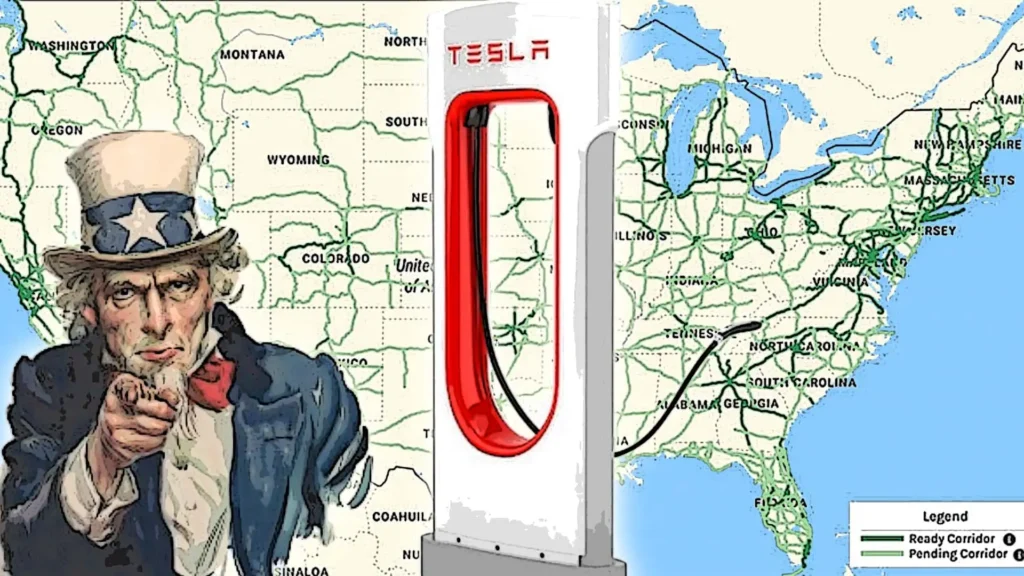
US. What Happens To The Federal Money Tesla Won For Superchargers
Tesla is backing off from the Supercharging business after winning millions in government funding. We explain what happens next.
Elon Musk’s decision to suddenly dissolve Tesla’s electric vehicle charging division raises lots of thorny questions. Such as: “Huh?” And also: “He did what now?” But then, there's also the question of what will happen to the millions of dollars in federal funding that Tesla has won to build new fast-charging stations.
Tesla has been one of the largest beneficiaries of the Biden Administration’s National Electric Vehicle Infrastructure (NEVI) program, which set aside some $5 billion to build out fast charging stations along major highways and is just starting to bear fruit. Tesla has won funding for 69 sites so far, totaling $28.8 million, according to the consulting firm EVAdoption.
Now that Tesla has laid off a significant number of its charging employees and announced plans for much slower expansion of the Supercharger network, what happens to all that cash?
For the answer, we turned to EVAdoption's CEO Loren McDonald, who closely tracks NEVI funding. If Tesla—or any winning charging firm, for that matter—was to decline to proceed with a NEVI-funded project, the award would usually go to the next-best bidder, he said. Each state doles out NEVI money through its own bidding process.
The only complication would be if an award winner was the only company that applied to a particular project, he said. In that case, the state would have to open up a new request-for-proposal process.
Biden Administration officials, for their part, told InsideEVs that they do not expect Tesla’s retreat to impact its plans to expand access to charging infrastructure. Through NEVI and other programs, the White House aims to build out a national network of 500,000 public charging ports. That’s part of a broad climate agenda that includes a goal for half of all U.S. car sales to be electric by 2030.
“Because NEVI provides grants to states, which run competitive procurements to select vendors, we don't expect individual business decisions to impact EV charging projects funded by the Bipartisan Infrastructure Law,” a spokesperson for the Joint Office of Energy and Transportation, which was created to support zero-emission transportation initiatives like NEVI, told InsideEVs via email.
The spokesperson said on Friday that they were not aware of any companies backing out of NEVI-funded projects.
Tesla has won 14% of the total NEVI projects so far, according to EVAdoption. Other top recipients include Love's Travel Stops and BP. Whether or not Tesla drops out of NEVI projects, the fact that the leading EV charging company is now slowing its roll creates opportunities for competitors, industry analysts said.
“I’m sure there are companies licking their chops,” McDonald said.
Of course, Tesla’s pivot also poses its fair share of challenges. With more plugs than rivals and a reputation for reliability, Tesla’s Supercharger network is by far the dominant force in U.S. EV charging. Its exit certainly doesn’t inspire confidence among a car-buying public that’s already suffering from anxiety about where to potentially charge an EV.
Moreover, Tesla builds stations more quickly and cheaply than rivals, McDonald said. (Its NEVI proposals are typically for half the cost of other bidders, he said.) So Musk's automaker can, in theory, help make Biden's billions go farther, faster than its competitors. Now the big question is: Will the rest of the charging industry step up to fill the void?